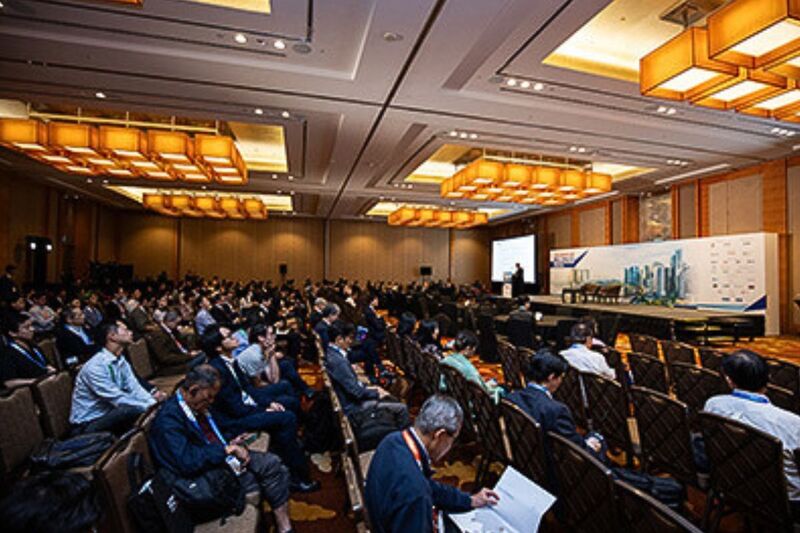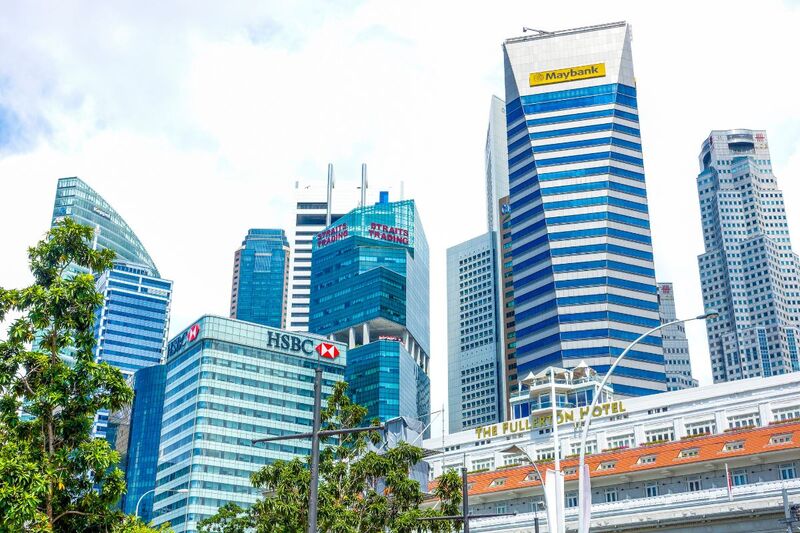Japan–Southeast Asia Market Forum 2025: 7 Key Takeaways for Companies and Professionals in Singapore & Japan

Source: Japan–Southeast Asia Market Forum Website
This article is written in English for readers in Singapore. Chinese and Japanese translations are available on our website.
On 14 November 2025, government officials, global investors, Japanese corporates and Southeast Asian business leaders gathered at Mandarin Oriental, Singapore for the Japan–Southeast Asia Market Forum 2025, part of Japan Weeks 2025. Organised by JPX, JETRO, and Nikkei, the forum has become a premier platform shaping cross-border investment and innovation strategies between Japan and ASEAN.
Representing Reeracoen Group, our Group CEO, Kenji Naito, attended the forum to deepen insights into regional workforce and economic shifts that will shape hiring trends in 2026.
This year’s theme, “Path for Asia in the New World Order,” focused on navigating global uncertainty through strong Japan–ASEAN partnerships. Below are the 7 key takeaways that matter for companies, HR leaders, and professionals in Singapore and Japan.
1. ASEAN Remains an FDI Magnet — With Singapore Leading the Region
Despite geopolitical tensions and slowing global growth, ASEAN continues to attract robust investment.
According to the ASEAN Investment Report 2024, ASEAN recorded US$229.8 billion in FDI inflows, the third consecutive year of growth. Singapore captured US$159.7 billion, representing 71 percent of total ASEAN inflows — far ahead of regional peers.
What this means for employers
- Singapore remains the investment and HQ capital of ASEAN.
- Regional teams, especially those serving Japan, will continue to grow.
- Firms must compete harder for high value, bilingual talent.
What this means for professionals
- Demand for workers with Japan–ASEAN market knowledge, multilingual abilities, and cross-border exposure will rise.
- Growth sectors include finance, tech, sustainability, manufacturing and innovation.
2. Japan Is Accelerating Its Push to Become a Global Asset Management Hub
Speakers from Japan’s Financial Services Agency (FSA) and JPX highlighted Tokyo’s strategic ambition to strengthen its position in global capital markets.
Key reforms include:
- Faster regulatory approval for foreign asset managers
- Stronger English disclosure standards
- Corporate governance reforms that increase transparency
- Simplified market segments: Prime, Standard, Growth
According to JETRO’s Invest Japan Report, inward FDI stock hit ¥50.5 trillion in 2023, and Japan aims to reach ¥100 trillion by 2030, with new targets indicating ¥150 trillion by mid-2030s.
Impact on employers
- More cross-border fund management roles will emerge in Singapore and Tokyo.
- Rising demand for compliance, risk, treasury, investments, and sustainability professionals.
Impact on professionals
- Japanese bilinguals in Singapore are in high demand.
- Finance professionals with ETF, asset management, or governance expertise gain long term advantage.
3. ETFs Are Becoming the New Japan–Asia Bridge
The Japan ETFs: Expanding Horizons Across Asia pre-event summit highlighted how ETFs are reshaping global access to Japanese markets.
Key themes included:
- Execution excellence to attract global investors
- ETF strategies tied to robotics, semiconductors, ESG and corporate reform
- Growing ETF distribution networks across Singapore and Hong Kong
Why it matters
Banks, brokerages and fintech firms in Singapore will expand ETF product teams, requiring talent in:
- Index research
- ETF distribution
- Quant analytics
- Client advisory
4. Japan’s Corporate Governance Reforms Are Unlocking New Value
A central message at the forum: Japan’s governance reforms are working.
Since 2022, the Tokyo Stock Exchange has pushed for:
- Improved English investor communications
- TCFD-aligned sustainability disclosures
- Better capital efficiency and ROE
- Engagement between management and global investors
For companies in Singapore and Japan, this increases demand for specialists in:
- ESG
- Investor relations
- Strategic planning
- Governance and sustainability reporting
Professionals with these skills will see rising opportunities, especially in multinational teams.
5. Innovation and Decacorn Startups Are Driving New Career Pathways
The fireside chat with Keisuke Honda and the announcement of the TSE Asia Startup Hub reflected Japan’s renewed push into regional innovation.
Startups showcased included high-growth companies from:
- Singapore
- Vietnam
- Malaysia
- Taiwan
- Korea
These startups are exploring cross-border partnerships and potential listings on the Tokyo Stock Exchange.
What this means for workers
- More Japan-linked roles in product, technology, sales, and business development
- More opportunities for ASEAN talent to work with Japanese innovation teams
- Startups will recruit multilingual talent who can operate regionally
6. Geopolitics Is Now a Business-Critical Talent Issue
Panels by Nomura, BlackRock, S&P Dow Jones Indices and global macro strategists emphasised that companies must plan for a permanently volatile environment.
Top risks discussed:
- US–China strategic competition
- Energy and commodity shocks
- Supply chain fragmentation
- Inflation differentials across regions
- Tariff unpredictability under changing US administrations
For HR and leaders
- Workforce resilience and mobility planning are now essential
- Leadership roles in risk, strategy, and treasury will grow
- Teams must be prepared for rapid market shifts
7. Talent Is the Core Driver of Japan–ASEAN Economic Collaboration
JETRO’s data shows 65.2 percent of Japanese companies in ASEAN expect profits to rise, signalling confidence in regional growth.
Hiring will be strongest in:
- Manufacturing & semiconductors
- Corporate banking & asset management
- ESG & sustainability
- Digital transformation
- Regional HR & cross-border operations
Reeracoen is uniquely positioned across Japan, Singapore, Vietnam, Thailand, Malaysia and Taiwan to support this rising demand.
Recommended Actions for Companies & Professionals
For Companies
- Strengthen your Japan–ASEAN leadership bench.
- Invest in bilingual talent across finance, ESG and innovation.
- Partner with specialist recruiters with regional expertise.
For Professionals
- Build a “Japan plus ASEAN” skill identity.
- Upskill in Japanese language, ESG, governance, or cross-border finance.
- Explore roles that link Singapore, Tokyo, and key ASEAN markets.
FAQ: Japan–Southeast Asia Market Forum 2025
1. What is the Japan–Southeast Asia Market Forum?
A strategic economic forum jointly organised by JPX, JETRO and Nikkei, held annually in Singapore to strengthen Japan–ASEAN business and investment collaboration.
2. Who attends this event?
Government leaders, global investors, Japanese corporates, Southeast Asian CEOs, asset managers, startups, and regional HR/strategy leaders.
3. Why is this forum important for hiring trends?
Because growth in FDI, reforms and innovation directly increases demand for Japan–ASEAN bilingual and cross-border talent.
4. I’m a Japanese professional wanting to work in Singapore. What should I focus on?
English proficiency, understanding of Singapore’s regulations, and familiarity with ASEAN markets.
5. I’m based in Singapore and want more Japan exposure. What roles should I look for?
Positions in asset management, corporate banking, sustainability, manufacturing, and regional HR are expanding rapidly.
Looking to hire bilingual talent or regional leaders for Japan–ASEAN expansion?
➡️ Submit a Client Hiring Request
Interested in roles connected to Singapore, Japan and ASEAN markets?
➡️ Submit Your CV to Reeracoen Singapore
✅ Final Author Credit
By Valerie Ong (Regional Marketing Manager)
Published by Reeracoen Singapore — a leading recruitment agency in APAC.
Related Articles
- Why Singapore Remains a Top Destination for Japanese Workers
- Singapore Fintech Deals Hit US$1 Billion in H1 2025 — What It Means for Hiring in Digital Finance
- Upskilling in the Age of AI & Green Jobs: Why Singapore Must Prepare Now
References
1. Japan–Southeast Asia Market Forum 2025 — Japan Weeks Official Page
https://www.fsa.go.jp/japanweeks/en/marketforum/
2. Japan–Southeast Asia Market Forum 2025 — Full Event Website
https://japanseamarketforum2025.com/
3. ASEAN Investment Report 2024 — FDI Flows
https://asean.org/our-communities/economic-community/asean-investment-report/
4. ASEANStats — FDI Dashboard
https://www.aseanstats.org/
5. JETRO — Invest Japan Report 2024
https://www.jetro.go.jp/en/invest/reports/
6. Reuters — Japan raises FDI target to $1 trillion by mid-2030s
https://www.reuters.com/world/asia-pacific/japan-raises-foreign-direct-investment-target-1-trillion-by-mid-2030s-2024-06-07/
7. JETRO — Survey on Japanese Companies in Asia & Oceania
https://www.jetro.go.jp/en/reports/survey/
8. UNCTAD — World Investment Report
https://unctad.org/publications/world-investment-report
9. Nikkei — Market Forum Special Report
https://ps.nikkei.com/marketforum/

Disclaimer:
The information provided in our blog articles is intended for general informational purposes only. It is not a substitute for professional advice and should not be relied upon as such.
While we strive to provide accurate and up-to-date information, the ever-evolving nature of certain topics may result in content becoming outdated or inaccurate over time. Therefore, we recommend consulting with qualified professionals or experts in the respective fields for specific advice or guidance. Any actions taken based on the information contained in our blog articles are solely at the reader's discretion and risk. We do not assume any responsibility or liability for any loss, damage, or adverse consequences incurred as a result of such actions.
We may occasionally provide links to external websites or resources for further information or reference. These links are provided for convenience and do not imply endorsement or responsibility for the content or accuracy of these external sources. Our blog articles may also include personal opinions, views, or interpretations of the authors, which do not necessarily reflect the views of our organisation as a whole. We encourage readers to verify the accuracy and relevance of information presented in our blog articles and to seek professional advice when needed. Your use of this website and its content constitutes acceptance of this disclaimer.






